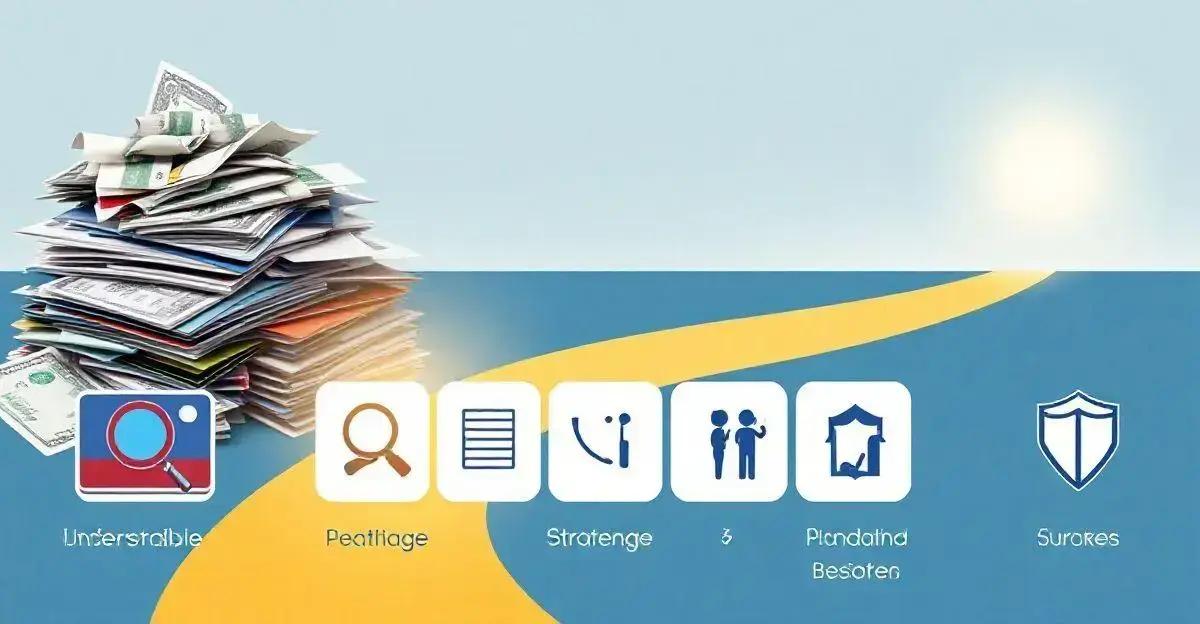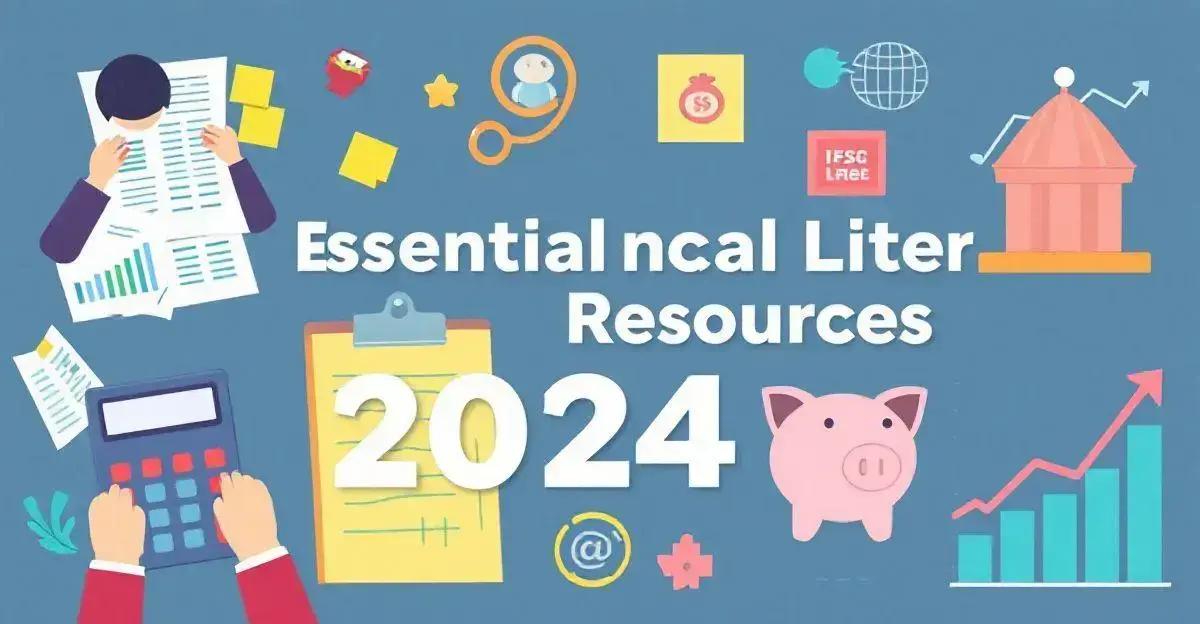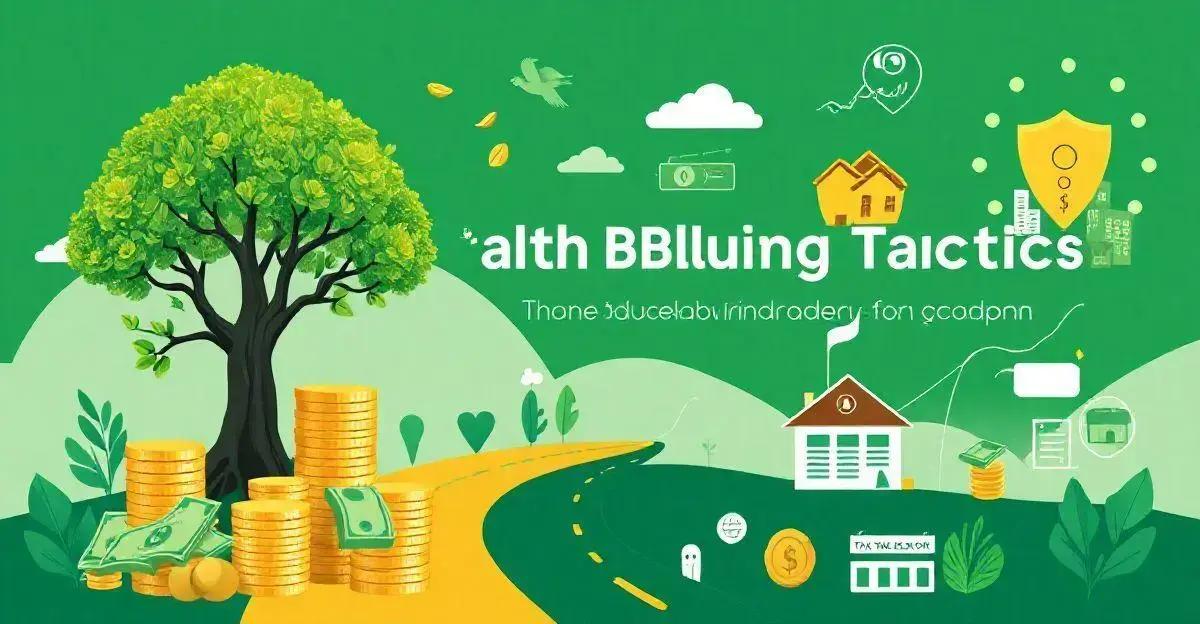Are you tired of living paycheck to paycheck, weighed down by the burden of credit card debt? You’re not alone. Millions of Americans struggle with credit card debt, and it can feel overwhelming.
The good news is that there are steps you can take to take control of your debt and start rebuilding your financial future.
In this post, we’ll explore the strategies for paying off credit card debt and share six simple steps you can take to achieve financial freedom.
Understanding Credit Card Debt
Credit card debt refers to the amount of money borrowed by individuals or businesses through credit cards, which is typically paid back with interest over a period of time. Credit card debt can be classified into different types, including revolving debt, installment debt, and credit card balance transfer debt. Understanding the different types of credit card debt is crucial in developing a solid plan to manage and pay off debt. In this post, we will delve into the various aspects of credit card debt, exploring the causes, consequences, and strategies for paying off debt.
The consequences of credit card debt can be far-reaching and devastating, affecting not only the individual’s financial well-being but also their credit score and overall quality of life. High-interest rates, late fees, and penalties can quickly add up, making it difficult to pay off the debt. Additionally, credit card debt can lead to financial stress, anxiety, and even depression. It is essential to understand the consequences of credit card debt to avoid falling into the trap of debt and to develop a plan to get out of debt quickly and efficiently.
Paying off credit card debt requires a combination of strategic planning, discipline, and patience. One effective strategy is to prioritize your debts by focusing on the credit cards with the highest interest rates or the smallest balances. Another strategy is to consolidate debt by transferring credit card balances to a lower-interest credit card or a personal loan. Additionally, making more than the minimum payment each month and avoiding new debt can help to pay off debt faster and save money on interest.
Credit card debt negotiation and settlement involve communicating with creditors to reduce the amount of debt owed or to establish a payment plan that is more manageable. Creditors may be willing to negotiate a settlement or debt reduction if you are struggling to make payments or if you are experiencing financial hardship. Negotiating with creditors requires a clear understanding of your financial situation, a solid plan for debt repayment, and effective communication skills.
Building credit after paying off debt is a crucial step in achieving financial stability and freedom. Once you have paid off your debts, you can start rebuilding your credit by making timely payments on new credit accounts, keeping credit utilization ratios low, and monitoring your credit report for errors. Good credit habits, such as paying bills on time and keeping credit card balances low, can help to improve your credit score over time.
Preventing credit card debt in the future requires discipline, self-awareness, and a solid understanding of personal finance. By setting a budget, avoiding impulse purchases, and using credit cards responsibly, you can avoid falling into the trap of debt. Additionally, using credit cards that offer rewards and benefits, such as cashback or travel points, can help to make credit card use more rewarding and less likely to result in debt.
The Consequences of Credit Card Debt
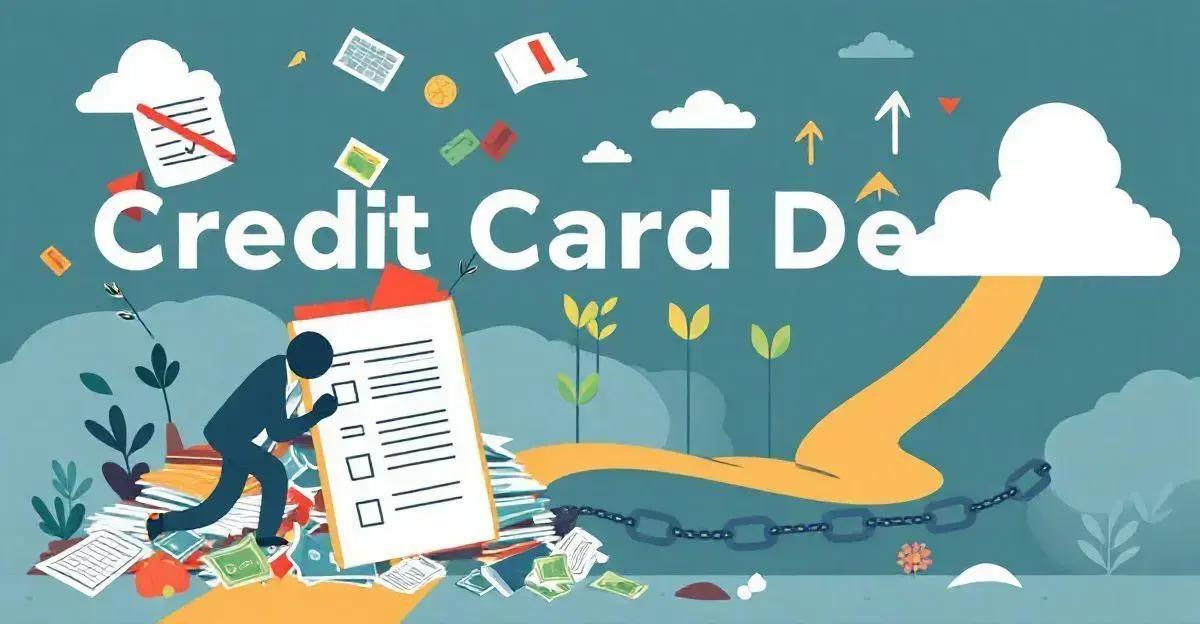
Understanding Credit Card Debt
Credit card debt can be a significant financial burden for many individuals and businesses. It is essential to understand the basics of credit card debt, including interest rates, fees, and payment terms. By grasping the fundamentals of credit card debt, you can make informed decisions about managing your debt and avoiding financial pitfalls.
The Consequences of Credit Card Debt
The consequences of credit card debt can be far-reaching and devastating, affecting not only the individual’s financial well-being but also their credit score and overall quality of life. High-interest rates, late fees, and penalties can quickly add up, making it difficult to pay off the debt. Additionally, credit card debt can lead to financial stress, anxiety, and even depression.
Strategies for Paying Off Credit Card Debt
Paying off credit card debt requires a combination of strategic planning, discipline, and patience. One effective strategy is to prioritize your debts by focusing on the credit cards with the highest interest rates or the smallest balances. Another strategy is to consolidate debt by transferring credit card balances to a lower-interest credit card or a personal loan. Additionally, making more than the minimum payment each month and avoiding new debt can help to pay off debt faster and save money on interest.
Credit Card Debt Negotiation and Settlement
Credit card debt negotiation and settlement involve communicating with creditors to reduce the amount of debt owed or to establish a payment plan that is more manageable. Creditors may be willing to negotiate a settlement or debt reduction if you are struggling to make payments or if you are experiencing financial hardship. Negotiating with creditors requires a clear understanding of your financial situation, a solid plan for debt repayment, and effective communication skills.
Building Credit After Paying Off Debt
Building credit after paying off debt is a crucial step in achieving financial stability and freedom. Once you have paid off your debts, you can start rebuilding your credit by making timely payments on new credit accounts, keeping credit utilization ratios low, and monitoring your credit report for errors. Good credit habits, such as paying bills on time and keeping credit card balances low, can help to improve your credit score over time.
Preventing Credit Card Debt in the Future
Preventing credit card debt in the future requires discipline, self-awareness, and a solid understanding of personal finance. By setting a budget, avoiding impulse purchases, and using credit cards responsibly, you can avoid falling into the trap of debt. Additionally, using credit cards that offer rewards and benefits, such as cashback or travel points, can help to make credit card use more rewarding and less likely to result in debt.
Strategies for Paying Off Credit Card Debt
Paying off credit card debt requires a combination of strategic planning, discipline, and patience. One effective strategy is to prioritize your debts by focusing on the credit cards with the highest interest rates or the smallest balances. Another strategy is to consolidate debt by transferring credit card balances to a lower-interest credit card or a personal loan. Additionally, making more than the minimum payment each month and avoiding new debt can help to pay off debt faster and save money on interest. It’s also important to consider debt snowballing, where you pay off the credit card with the smallest balance first, or debt avalanche, where you pay off the credit card with the highest interest rate first. By developing a personalized plan and sticking to it, you can overcome credit card debt and achieve financial freedom.
Credit Card Debt Negotiation and Settlement
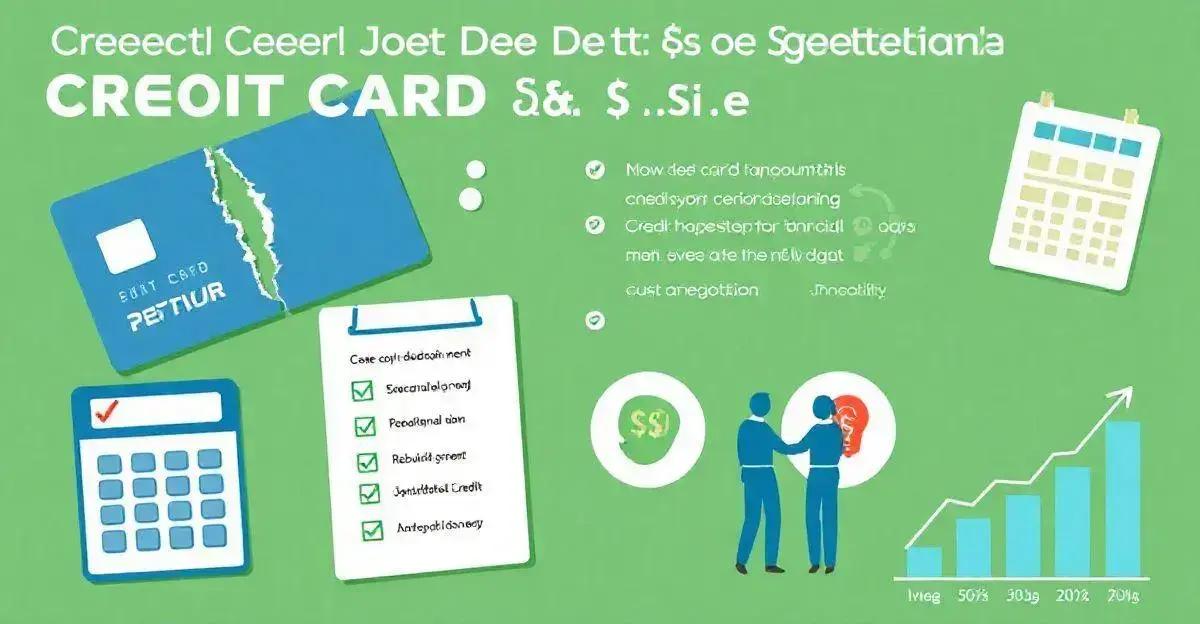
Credit card debt negotiation and settlement involve communicating with creditors to reduce the amount of debt owed or to establish a payment plan that is more manageable. Creditors may be willing to negotiate a settlement or debt reduction if you are struggling to make payments or if you are experiencing financial hardship. The negotiation process typically begins with a thorough review of your financial situation, including your income, expenses, and debt obligations. From there, you can work with your creditors to develop a customized plan that meets your needs and helps you get back on track financially.
Building Credit After Paying Off Debt
Building credit after paying off debt is a crucial step in achieving financial stability and freedom. Once you have paid off your debts, you can start rebuilding your credit by making timely payments on new credit accounts, keeping credit utilization ratios low, and monitoring your credit report for errors.
Good credit habits, such as paying bills on time and keeping credit card balances low, can help to improve your credit score over time. Additionally, you can consider opening a new credit account, such as a credit card or personal loan, and using it responsibly to demonstrate your creditworthiness to lenders.
By following these steps, you can rebuild your credit and enjoy better financial opportunities in the future.
Preventing Credit Card Debt in the Future
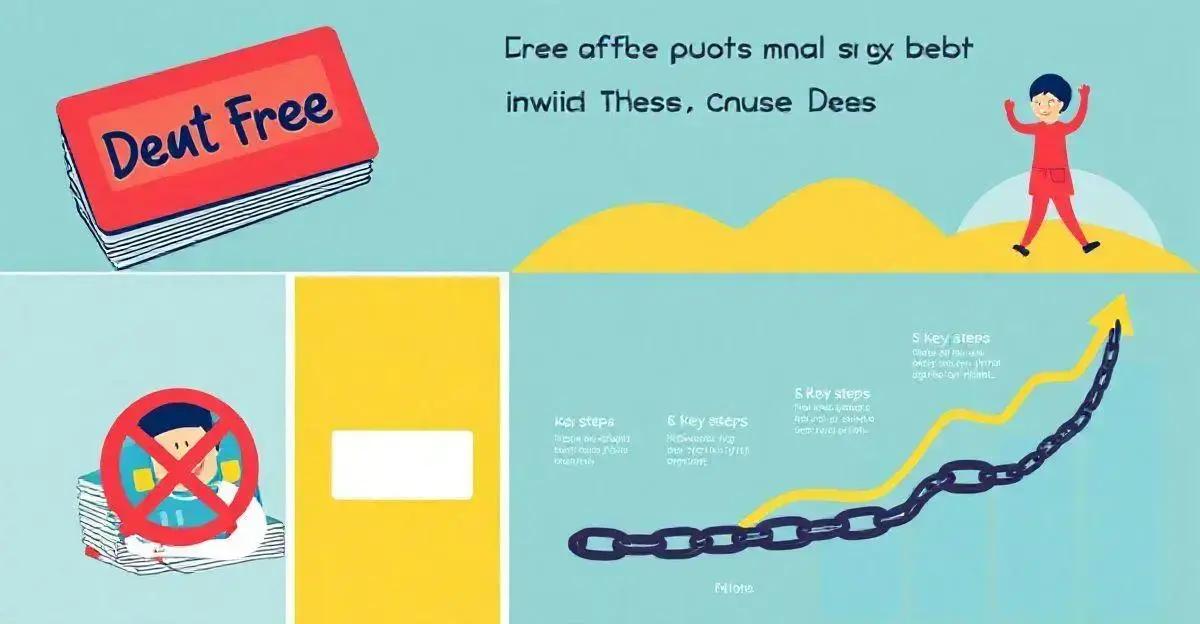
Preventing credit card debt in the future requires a combination of financial discipline, self-awareness, and smart financial habits. By setting a budget, avoiding impulse purchases, and using credit cards responsibly, you can avoid falling into the trap of debt.
Additionally, considering alternative forms of credit, such as personal loans or credit unions, can help you avoid the high interest rates and fees associated with credit cards. By following these steps, you can maintain financial stability and avoid the consequences of credit card debt.
Frequently Asked Questions about Credit Card Debt
What is credit card debt?
Credit card debt is the amount of money borrowed by an individual or business using a credit card, which must be repaid with interest.
What are the consequences of credit card debt?
The consequences of credit card debt can be severe and long-lasting, including high interest rates, late fees, and penalties, which can lead to financial stress, anxiety, and even depression.
How can I pay off credit card debt?
Paying off credit card debt requires a combination of strategic planning, discipline, and patience. You can prioritize your debts by focusing on the credit cards with the highest interest rates or the smallest balances, consolidate debt by transferring credit card balances to a lower-interest credit card or a personal loan, and make more than the minimum payment each month.
What is credit card debt negotiation and settlement?
Credit card debt negotiation and settlement involve communicating with creditors to reduce the amount of debt owed or to establish a payment plan that is more manageable. Creditors may be willing to negotiate a settlement or debt reduction if you are struggling to make payments or if you are experiencing financial hardship.
How can I build credit after paying off debt?
Building credit after paying off debt is a crucial step in achieving financial stability and freedom. You can start rebuilding your credit by making timely payments on new credit accounts, keeping credit utilization ratios low, and monitoring your credit report for errors.
How can I prevent credit card debt in the future?
Preventing credit card debt in the future requires a combination of financial discipline, self-awareness, and smart financial habits. You can avoid falling into the trap of debt by setting a budget, avoiding impulse purchases, and using credit cards responsibly.

